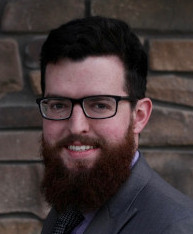Cleveland Clinic laboratory director tells medical laboratories that a coherent national testing strategy is possible but will require coalition of national organizations.
With no coherent national testing strategy for COVID-19, clinical laboratories are left on their own as they evaluate the trends for COVID-19 testing needs and how these needs are likely to change. Local regions may have testing strategies, but there is currently no guidance on how COVID-19 testing will be strategized on a national level.
The Centers for Disease Control and Prevention (CDC) Division of Laboratory Systems (DLS) convenes a weekly call with clinical laboratories to discuss the nation’s clinical laboratory response to coronavirus disease (COVID-19). A May 18, 2020, call focused on the lack of a coherent national COVID-19 testing strategy.
Presenting on this topic was Gary Procop MD, MS, Medical Director and Co-Chair of Cleveland Clinic’s Enterprise Laboratory Stewardship Committee and Director of Molecular Microbiology, Virology, Mycology and Parasitology at the Cleveland Clinic.

Gary Procop, MD, MS (pictured), Medical Director and Co-Chair of Cleveland Clinic’s Enterprise Laboratory Stewardship Committee and Director of Molecular Microbiology, Virology, Mycology and Parasitology at the Cleveland Clinic, called for lab leaders to join in producing evidence-based national guidance toward a national COVID-19 testing strategy. (Photo copyright: Cleveland Clinic)
Procop spoke of the role of clinical laboratories in the national COVID-19 response. “The mission to serve patients and be a voice in our field, that is exactly why we’re here. And what’s happened already, there’s been a call to action,” Procop said. “And we’ve seen flexibility, we’ve seen laboratories bring up tests at, really, at an incredible pace. And really expand testing to continue to try to meet the needs of our patients.” Clinical laboratories can have a more meaningful role in developing a national testing strategy, Procop explained. “We really want stronger representation from the leaders in the pathology and laboratory medicine community at the state and federal level … we can be additions to the great folks that already serve our country in the public health space.”
Impact of a Defined COVID-19 National Testing Strategy
During the call, Procop focused on the need to discuss and define test utilization for COVID-19. “This is about optimal test utilization. We’ve got issues to deal with, with respect to tests,” Procop said on the call. “We need to define it. And we do that scientifically. And then, while we do that, we need to also think about, ‘what can’t it do?’ And when we do that, we’re describing boundaries. And where we put those two things together, we really come up with how to use it.”
Procop also discussed the need to build a coalition, using a metaphor to illustrate his point. “Building a coalition is like baking a cake. You need eggs, you need salt, you need flour, et cetera,” Procop said. “The experts from all of our individual wonderful national organizations are those ingredients. AMP has something to offer, ASCP has something to offer, ASM has something to offer. But if all you have is eggs, then you’re eating eggs.
“What is truly needed is someone to put this together in an appropriate way, and that’s where the chef comes in,” Procop explained. “So you pick a chef that is an honest broker and is going to pull these representatives from, again, our excellent organizations. When we get that honest broker, that chef that will pull together all the right ingredients, I think we’re going to have something that we all love. And in the analogy, it’s cake. In the COVID-19 world, it’s evidence-based national guidance.”
Procop concluded by expounding on the national impact of a defined strategy for COVID-19 lab testing. “With a coherent national test strategy, we will be promoting reliable tests, and we’ll be defining when it should be used and in what patient population. We’ll be disseminating accurate scientific information about testing that’s open to everyone,” he said. “Physicians and other clinicians won’t have to guess how to use a test for COVID-19. We’ll develop best practice, provide logistic support for public health and patient care outcomes for patients with COVID disease.”
Clinical laboratories and anatomic pathology groups should pay close attention to Procop’s call for a national COVID-19 testing strategy that incorporates evidence-based guidance. Such a strategy for COVID-19 will affect both molecular testing and serology testing and will define how these tests are used. The result will heavily influenceCOVID-19 test volumes, and, consequently, the income clinical laboratories will generate from these tests.
New Funding Released for State and Local COVID-19 Testing Response
The Department of Health and Human Services (HHS) announced May 18 new funding of $11 billion to support COVID-19 testing. This includes $10.25 billion to states, territories, and local jurisdictions through the Epidemiology and Laboratory Capacity for Prevention and Control of Emerging Infectious Diseases (ELC) cooperative agreement of the Centers for Disease Control and Prevention (CDC).
According to HHS, each governor or designee of each state, locality, territory, tribe, or tribal organization receiving funds shall submit to HHS its plan for COVID-19 testing, including goals for the remainder of calendar year 2020, to include:
- Number of COVID-19 tests needed, month-by-month to include molecular, serological, and other tests, as appropriate;
- Month-by-month estimates of laboratory and testing capacity to support a national COVID-19 testing strategy, including related to workforce, equipment and supplies, and available tests; and
- Description of how the resources will be used for testing, including easing any COVID-19 community mitigation policies.
Jurisdictions will use the federal funding they receive to meet the testing goals laid out in their COVID-19 testing plans, including purchasing supplies (such as test kits and other testing supplies, as necessary).
States may vary in their ability to respond to ongoing and unexpected developments during the SARS-CoV-2 pandemic. These have the potential to change COVID-19 testing, surveillance, and control needs. In Nevada, for example, Gov. Steve Sisolak announced June 1 a “vastly expanded” COVID-19 testing and contact tracing using CDC funding money, the Las Vegas Review-Journal reported.
The plan will provide for expanded lab capacity for COVID-19 testing and analysis statewide, with community-based testing the plan’s “cornerstone,” according to the Review-Journal.
Mark Pandori, PhD, Director of the Nevada State Public Health Laboratory and an Associate Professor of Pathology and Laboratory Medicine at the University of Nevada, Reno School of Medicine, will serve as the state’s chief of COVID-19 testing. Pandori is temporarily expanding his existing responsibilities to help direct and coordinate Nevada’s immediate and long-term testing strategy, which includes increasing testing capacity statewide, according to Sisolak’s office. Sisolak credits Pandori with finding innovative and creative solutions to testing issues facing Nevada and the United States.
More states are expected to release their plans in the coming days. For that reason, clinical laboratory managers and pathologists will want to stay alert to any announcements from their state’s officials about plans for COVID-19 testing and how patients can access such testing.

—By Caleb Williams, Editor, COVID-19 STAT
Related Resources:
Clinical Laboratory COVID-19 Response Weekly Call
HHS Delivers Funding to Expand Testing Capacity for States, Territories, Tribes
State will expand COVID-19 testing, contact tracing
Gov. Sisolak approves comprehensive COVID-19 testing, contact tracing plan …






